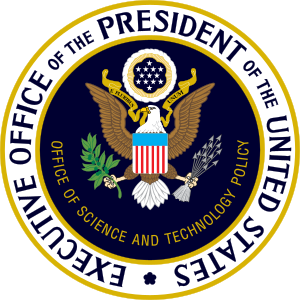First things first: now that I have all my ducks in a row,
I'll be ditching the lab and going on a three week road trip through the
Southwest. I start Monday in Chicago, drive down to Oklahoma City and take it
from there. Death Valley, Vegas, and Park City are definitely on the list. As
such, I won't be able to post for three weeks. But fret not! I will be back;
this blog will not be sit idle. That, my friends, is the truth.
Dr Hwang's cloning (ala, Snuppy)?
Well, it turns out that such work maynot be exactly truthful. A
scandal over Hwang's work with stem cells is brewing to no small degree. A last
look at
Google News' referral of the Bloomberg article on the Dr Hwang
controversy showed
671 related stories. The controversy erupted as such:
1) Dr
Hwang et al. publish a Science paper (interesting because Nature
has a much higher impact factor, especially for biology) suggesting that they
are now able to create pluripotent, donor-matching stem cells from human
epidermal cells and oocytes (human ovarian eggs).
2) Word gets out that the oocytes
he used were actually from a postdoctoral researcher in his lab! That's
a conflict of interest if I ever saw one. Further, Hwang makes the ridiculous
assertion that the
eggs were forced on him.
3) Hwang's US
collaborator at the University of Pittsburgh, Gerald Schatten, leaves
the project and demands his name be taken off the paper.
4) Roh Sung Il, another postdoc in Hwang's lab, makes a statement today
claiming that out
of the supposed eleven stem cell lines created by Hwang's lab, nine are fictitious
and the remaining two may not even be pluripotent. Ouch.
This may turn out to be a case of "falsifying data," the cardinal sin
of scientific research (is there a cardinal sin in the practice of law?), just
like this genius
turned dumb. Falsification of data is Science's summum
malum for several reasons: first, it calls in to question the veracity of
all the author's previous publications, some of which may have been used to
base other work; second, it is a form of embezzlement if the author is
receiving grants that rely, obviously, on the truth behind his study's
assertions; and third, other authors may have filed grants using the untruthful
author's results as cause for further investigation. Let there be no doubt,
John Q Public of South Korea: if Dr Hwang is guilty of falsification of data,
it will be you, the Korean taxpayer, who is paying for it.
So where do these acts lie, legally speaking? Well, at least in the US, the NIH
has established one of my favorite sites, what I like call the PI
blotter(in labspeak, PI stands for principal investigator, or the person
running the lab). This delightful little site lists in an easy to read format
all those in the past year who have been found guilty of scientific
misconduct--much like your local police blotter! Individuals found guilty of
such crimes are often "disbarred" from scientific research for a set
period of time. In one instance, a PI
has gone to prison.
I was interested to note, however, that most of what makes scientific
illegitimacy a crime is an Executive
Order, not a federal statute. While this may seem somewhat strange, it
makes sense when you look at it in terms of the federal budget. The Executive
Branch controls the
Office of Science & Technology Policy (OSTP). [Note:
ever wonder how the President is able to say things like, "We're going to
go to the moon!" or "Build the Fermi collider!" and actually get
it done with little argument from Congress? In a nutshell, this is why.] The
OSTP works with the Office of Managerial Budget (OMB) to allocate funds to
various departments with a scientific bent (Labor, Energy, etc.) The NIH,
subsumed under the Department of Health and Human Services (DHHS), gets
allocated a certain amount of money for
bone plate research and other medical research. The Executive Office (i.e., the
President), therefore, hold the NIH's pursestrings. Piss off the NIH, you piss
off the President. A little more meaningful than cutting the heads of
parking meters, huh?
So before you try to clone something, please, check the veracity of your
tissues. Or, as Shakespeare could have written (had he been alive to see
this): To thine own cells, be true.







